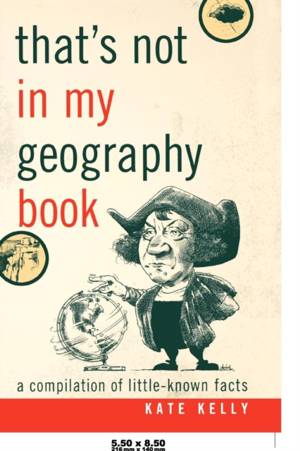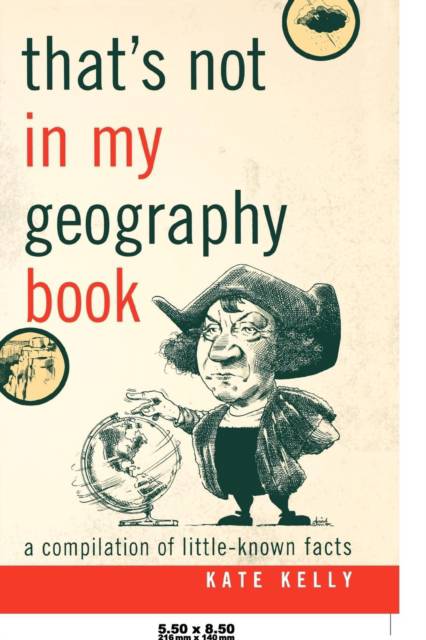
- Afhalen na 1 uur in een winkel met voorraad
- Gratis thuislevering in België vanaf € 30
- Ruim aanbod met 7 miljoen producten
- Afhalen na 1 uur in een winkel met voorraad
- Gratis thuislevering in België vanaf € 30
- Ruim aanbod met 7 miljoen producten
Zoeken
€ 22,45
+ 44 punten
Omschrijving
The latest in the series that includes best-selling That's Not in My American History Book and That's Not in My Science Book, this book brings geography to life exploring the "who" behind the discovery of various lands and the "what" behind how our world changes. From the earliest compass to today's handheld GPS systems, author Kate Kelly shows how people throughout time have navigated the world. She also rectifies the past by explaining why some people have gotten short shrift in geography books. (If Leif Eriksson's mom were alive, she would pre-order a copy of this book!) Kelly also explores "human geography," including such diverse subjects as how geography affects the spread of human disease and how the global marketplace is causing our world to shrink.
While discovery of new lands may have been the most vital part of the world five hundred years ago, today preservation is key to maintaining the land we have. The last section of the book examines what we do to our world and what will happen if we fail at conservation. And don't forget about water--our most important natural resource and seventy percent of our world's surface! A chapter in this section is devoted to this vital substance.
While discovery of new lands may have been the most vital part of the world five hundred years ago, today preservation is key to maintaining the land we have. The last section of the book examines what we do to our world and what will happen if we fail at conservation. And don't forget about water--our most important natural resource and seventy percent of our world's surface! A chapter in this section is devoted to this vital substance.
Specificaties
Betrokkenen
- Auteur(s):
- Uitgeverij:
Inhoud
- Aantal bladzijden:
- 240
- Taal:
- Engels
Eigenschappen
- Productcode (EAN):
- 9781589793408
- Verschijningsdatum:
- 16/05/2009
- Uitvoering:
- Paperback
- Formaat:
- Trade paperback (VS)
- Afmetingen:
- 137 mm x 224 mm
- Gewicht:
- 272 g

Alleen bij Standaard Boekhandel
+ 44 punten op je klantenkaart van Standaard Boekhandel
Beoordelingen
We publiceren alleen reviews die voldoen aan de voorwaarden voor reviews. Bekijk onze voorwaarden voor reviews.











